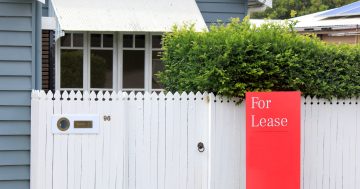
When tenants feel taken care of, they will take care of your property in return. Photo: Civium.
Tenants who care for a rental as if it were their own and always pay their rent on time is every property owner’s dream.
But according to Wayne Harriden, director of Civium Property Group’s residential arm, it’s a two-way street.
Having filled both landlord and property manager roles over many years in real estate, he says even if being a one-in-a-million landlord doesn’t guarantee tenants of the same calibre, it’s key to finding success as an investor.
So, what does a one-in-a-million landlord actually look like?
“If you want your tenants to feel like they’re living in their own home, not just a rental property, you have to create an environment that is clean, welcoming and safe,” Wayne says.
“This means accepting maintenance as king, keeping communications open and handling any issues as quickly and effectively as possible.
“Make the effort – when your tenants feel taken care of, they will take care of your property in return.”
Wayne’s most important piece of advice is not to go it alone. A good property manager acts as a mediator, a trained and professional buffer between you and your tenants.
“When keeping the phone line open results in 3 am calls, you don’t want to be on the receiving end,” he says.
“It’s also peace of mind for the renter. When they speak to a property manager, they know they’re dealing with someone who is experienced, objective and has the home’s best interests in mind.”
Without this buffer, the relationship between tenant and landlord can quickly break down. This can look like late payments, a rundown backyard, unapproved changes to the home or even a nasty dispute.

Civium Property director Wayne Harriden’s most important piece of advice is to not go it alone when managing an investment property. Photo: Civium.
Private leases are targeted by tenants with a habit for bad behaviour, or who jump from property to property. Without a manager behind them, private landlords can be left out in the cold.
“Evicting any tenant is not a fast process. There are a lot of hoops to jump through, and if you don’t know what they are, it can quickly turn into a drawn-out, draining nightmare,” Wayne says.
“A manager can look at past references and weed out the nasties before they ever step foot on the property.
“They also know what to look for during inspections, especially hard-to-spot water damage, sagging ceilings, rotting fences or blocked gutters. These can all cause serious damage in the long run, so it’s important that they’re recorded and handled properly.”
Wayne also encourages landlords to read inspections all the way through, look at each and every photo, and take careful note of any recommendations for maintenance or repairs. Staying abreast of issues will also help plan for the future of the property.
Finally, Wayne suggests building good relationships with local trades. Civium Property Management, for example, works closely with Ochre Trade Services.
“Ochre covers us for all our maintenance needs,” he says.
“Knowing a business well and nurturing that relationship is the key to faster, more reliable maintenance and emergency repairs.
“Find a group you click with and stick with them. You don’t want to deal with what comes from random handymen, or worse, DIY jobs.”





















